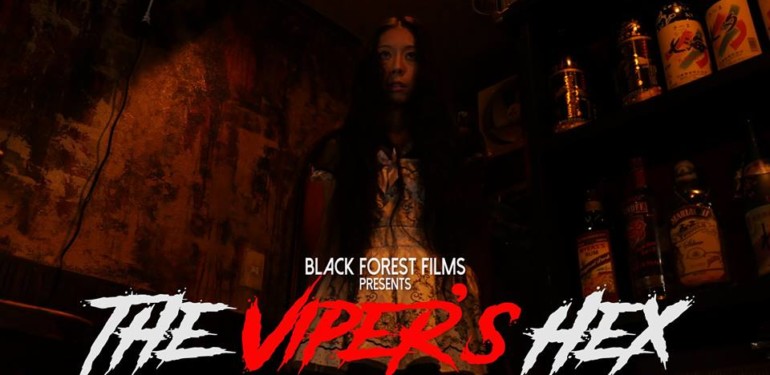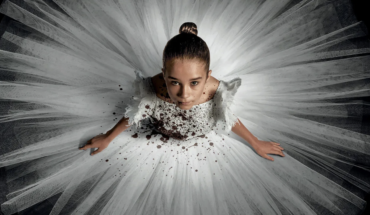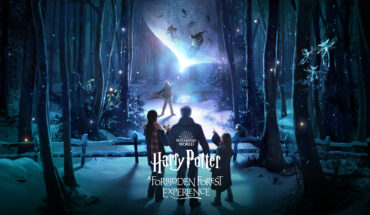Jasmine Jakupi and Addison Heath understand why audiences endure great horror films.
When I asked Jasmine Jakupi and Addison Heath, directors of The Viper’s Hex, why movie-goers love horror movies despite their intentions to scare you and make you uncomfortable, the answers they gave me proved that I was talking with horror devotees and total cinephiles.
For Heath, who wrote the script and co-directed the movie with Jakupi, a horror film is ‘emotionally non-specific’, that they evoke ‘a range of emotions’. In great horror films like this one, the horror is a consequence of the suffering undergone by the protagonist. Jakupi expanded on this, saying that horror films are a ‘great medium for metaphor’, allowing filmmakers to explore taboo or difficult subjects, and audiences to confront them from the comfort of a movie theatre.
The Viper’s Hex, which screened at this year’s Monster Fest to a packed house and rave responses, is about an impoverished prostitute named Kiyo (Saya Minami). Basing the story on an old Japanese folktale, Jakupi and Heath went to Tokyo to shoot the movie almost exclusively with Japanese actors and, in contrast to their previous films, largely in Japanese. Kiyo describes herself as ‘haunted’, an adjective that takes on a number of interpretations throughout the film. Working for Tetsuya (Yoji Yamada) an abusive pimp who claims he rescued her from a life of homelessness, Kiyo is terribly abused on more than one occasion.
I asked the directors about a specific sequence in a seedy tavern, in which Tetsuya holds Kiyo’s head down, pressed against the bar, telling her she’s worthless, interrogating her about something I won’t spoil here. It’s a tremendous sequence, one that shows Minami’s ability to evoke strength from a performance of victimisation and, for Addison, ‘the most important and complex scene in the movie’. Often, scenes depicting abuse are quickly cut away from, he said, acting as signifiers that, yes, the character is being abused, while usurping from the frame any emotional impact for the audience. Addison wanted the audience to endure the scene along with Kiyo, a point that recalls the late critic Roger Ebert’s quote that the movies ‘are like a machine that creates empathy.’
Taking inspiration from Martin Scorsese’s Taxi Driver (Jakupi and Addison originally wondered what Scorsese’s movie would look like if it were about a Japanese woman and set in Tokyo) The Viper’s Hex is essentially a revenge flick. Shots both inside and outside are claustrophobic, and with each side character revealing terrible intentions to Kiyo, there’s a powerful sense of inescapable horror throughout—no jump scares, just a mounting sense of dread.
Shooting the movie took an emotional toll on the cast and crew. During the sequence mentioned above J,akupi was crying on set and Minami took a method approach to the role. They knew, Addison said, that if the shooting was having this much of an effect on set, they were probably making something special. It’s an intense film and certain parts make for hard watching, but there’s a cathartic effect to it, a need to see things through and to finish Kiyo’s story, that makes this one of the most powerful and important entries at this year’s festival.
Jakupi and Heath will tour the film around the festival circuit for about a year before shopping around for a theatrical release. Reflecting the tireless work ethic of their major inspiration, Japanese director Takashi Miike (Audition, The Mole Song: Hong Kong Capriccio) the co-directors have already finished shooting and entered production on their next film, The Shinjuku Five. Addison reckons this one will be more of a crowd-pleaser than The Viper’s Hex, but I can attest that no one was displeased, despite the heavy-going subject matter, with this excellent film.
– Tom
Tom Bensley is a freelance writer in Melbourne who reviews anything he attends, watches or reads. It’s a compulsion, really. Follow him @TomAliceBensley.
Monster Fest 2017 ran from November 23 – 26. More reviews and coverage from the festival to come.




